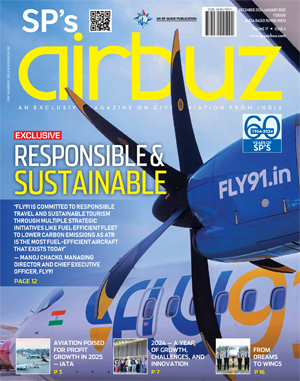CAE implements industry-leading Competency-Based Training and Assessment (CBTA) principles in business aviation
CBTA-principles in business aviation recurrent training program set to enhance pilot readiness and safety worldwide

CAE is proud to announce the implementation of Competency-Based Training and Assessment (CBTA) principles in Business Aviation within its training programs, marking a significant advancement in pilot training and safety. Recognized by leading global aviation regulators—including the FAA, EASA, UK CAA, and Transport Canada—CBTA introduces a data-driven, advanced training framework designed to meet the evolving demands of modern aviation.
CBTA is a structural evolution in aviation training, emphasizing demonstrated real-world competencies and practical decision-making, in addition to theoretical knowledge. CBTA is being adopted globally because it better prepares pilots for unpredictable and complex operational environments and is increasingly being encouraged or required by regulators.
This transformative approach enhances safety through competency development, more engaging training experiences, and clearer feedback and performance insights, ensuring pilots are optimally prepared for the complexities of real-world operations, particularly when flying next-generation aircraft in increasingly dynamic environments. CAE will start offering the CBTA-Principles Recurrent Training Program in January 2026, beginning with Phase A of the EASA recurrent training curriculum. CBTA will be offered as an optional component within the EASA recurrent training program, allowing clients to choose between the CBTA format or traditional training.
"The adoption of CBTA-Principles is a testament to CAE's ongoing commitment to safety, innovation, and excellence in business aviation," said Alexandre Prévost, President, Civil Aviation. "Our advanced training solutions are designed to help pilots and operators thrive in an ever-changing aviation landscape."
The CBTA framework elevates pilot training by incorporating standardized procedures with modular, scenario-based training, all delivered through CAE's Continuously Optimized Recurrent (CORe) model. Instructor development began a year ago, embedding CBTA principles into CAE's teaching standards through structured training and mentorship. This data-driven approach allows for continuous improvement, linking operational insights directly to training outcomes for measurable results.
What to expect from CBTA-Principles recurrent training:
Starting January 2026, CAE customers scheduled for the Phase A EASA Recurrent Training Program will experience a modernized training environment, where instructors assess and develop pilot skills using CBTA methodology. Key elements include:
- Data-driven training through modular CORe topics;
- Competency and observable behaviour assessments;
- Facilitated debriefings that promote reflection and learning;
- Practical, foundational CBTA techniques to enhance pilot performance.
Key benefits of CBTA for customers:
- Enhances safety by focusing on both technical and non-technical skills (like decision-making, teamwork, and situational awareness);
- Provides more relevant and engaging scenario-based training;
- Allows for more personalized feedback and measurable performance improvements.
CAE is proud to stay ahead of industry trends by offering clients the most advanced and effective training solutions available. This approach is recognized as more effective than traditional task-based training and is supported by industry leaders such as ICAO, IATA, and major manufacturers.
As CAE's global team of over 1,000 business aviation instructors and examiners continue to build proficiency in CBTA delivery, the company is setting a new standard in business aviation training—personalized, performance-focused, and aligned with the latest regulatory trends. The implementation of CBTA-Principles represents a major step forward for CAE customers seeking additional value and assurance in training for those critical moments in aviation.





